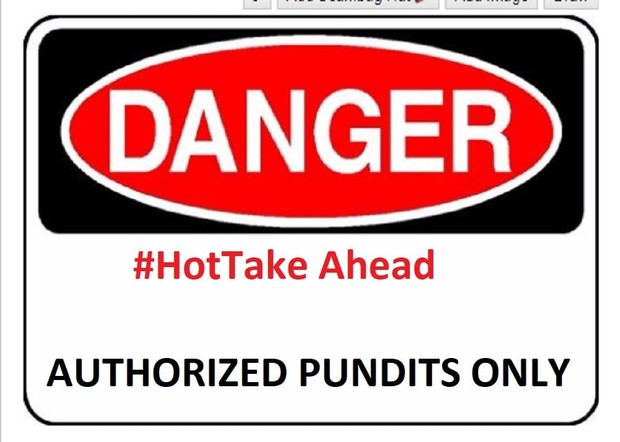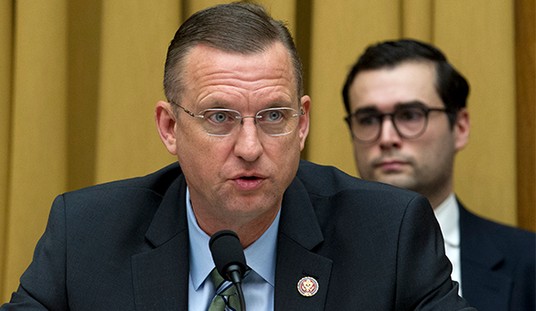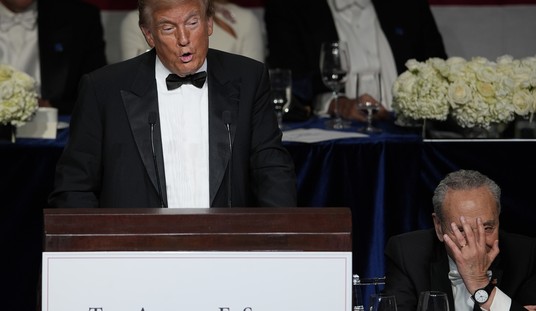
Early this morning, President Trump took to Twitter to add his views the discussion of the Parkland, FL, school shooting yesterday. As best we know right now, a 19-year-old man with an apparent history of emotional problems gunned down 17 students.
So many signs that the Florida shooter was mentally disturbed, even expelled from school for bad and erratic behavior. Neighbors and classmates knew he was a big problem. Must always report such instances to authorities, again and again!
— Donald J. Trump (@realDonaldTrump) February 15, 2018
Naturally, this brought out the crazy and the dishonest and the slappable faces:
almost a year ago Trump signed a bill rolling back Obama measure making it harder for mentally ill to get guns
— Jennifer Rubin (@JRubinBlogger) February 15, 2018
https://twitter.com/ezraklein/status/964154289479405568
Trump, who made it easier for mentally ill people to buy guns, blames mental health issues for Florida shooting https://t.co/iJ3FmH9OO4 pic.twitter.com/9sBT5maQFn
— Mother Jones (@MotherJones) February 15, 2018
Trump says the U.S. should act on mental health after the Florida school shooting. Last year, he signed a bill revoking Obama-era regulations banning gun purchases by people who receive Social Security disability checks for mental illness. https://t.co/808wQrlds6 pic.twitter.com/BrtX0uBc31
— Bloomberg Politics (@bpolitics) February 15, 2018
.@CeciliaVega: "One of the only major actions that Pres. Trump has taken on gun control is to block an Obama-era rule that made it harder for the mentally ill to have access to guns." https://t.co/NDrJeM9R3E pic.twitter.com/r3WLKP4GS8
— ABC News (@ABC) February 15, 2018
Reminder: Trump quietly signed a bill into law last February rolling back an Obama-era regulation that made it harder for people with mental illnesses to purchase a gun. https://t.co/qVLvABiLiE https://t.co/acrKw1kvst
— Kyle Griffin (@kylegriffin1) February 15, 2018
This is how a gun control advocate writing in the Washington Post described it at the time:
Last year, when the Social Security rule change was proposed, the Consortium for Risk-Based Firearm Policy, of which I am a member, studied the issue and prepared a comment. The Consortium includes some of the nation’s leading researchers, practitioners and advocates in gun violence prevention, public health and mental health. Our stated purpose is to advance evidence-based policy for reducing access to firearms by individuals who are at elevated risk of committing violence to themselves or others. We argued that the rule, in the form it was written, amounted to a substantially overbroad categorical prohibition, and we recommended an improved process that would incorporate additional findings specifically related to violence risk. But the Obama administration finalized the rule as it stood, against our recommendation.
When the government takes away people’s rights, usually they have a hearing, a chance to contest the proceedings, and legal representation. None of those is provided when a person is assigned a money manager by the Social Security Administration, nor would it be feasible to do so routinely. But when such a determination is later leveraged for a totally different purpose — suspension of a person’s Second Amendment rights — the lack of process becomes a legitimate civil rights concern.
Veterans Affairs has recently addressed the same problem in its policy of reporting to the FBI gun background check database the names of veterans with psychiatric disabilities who have been assigned a “fiduciary” to manage their VA benefits. When VA now considers assigning a fiduciary, the veteran in question is notified of the proposed determination and the supporting evidence, and is provided with an opportunity to request a hearing, be represented by counsel, and to contest the determination by presenting other relevant medical evidence.
In contrast, the Social Security policy simply assumes that people who have been determined to need assistance managing their disability benefits meet the definition of “adjudicated as a mental defective” in the 1968 Gun Control Act.
As the Supreme Court has made clear in the past, the Second Amendment to the Constitution confers an individual right to bear arms, but the right is “not unlimited.” If these rights are going to be limited or regulated in order to protect people and save lives, then they should be limited or regulated fairly, using evidence-based policymaking to balance risk to public safety and the rights and interests of vulnerable groups. Removing gun rights from people with mental illnesses based on a single criterion unrelated to violent histories only reinforces stigma around mental illness and exposes people struggling to overcome difficult conditions to unwarranted discrimination. And there’s no proof it makes anybody safer.
In fact, even Ezra Klein’s Vox.com was against the regulation at the time:
Why disabilities rights activists like me sided with the NRA on an Obama gun control rule https://t.co/i4KLFv3nvj
— streiff (@streiffredstate) February 15, 2018
(h/t to Brad Slager for that catch.)
And this from a former Obama Justice Department official
This bill was backed by ACLU & disability advocates who felt the reg unfairly targeted those w/mental disabilities who use 3rd-party payees. I don't know enough to have a view but this is more complicated than some tweets suggest. https://t.co/P8gD0m4MbChttps://t.co/2NqSLw3IMs https://t.co/jKxwwxSxDS
— Eric Columbus (@EricColumbus) February 15, 2018
Factually, the Parkland shooter would not have been covered by the Obama regulation. Factually, we know that he’d owned his rifle for a year, so even with the regulation he still bought it.
I don’t pretend to know what would have prevented this shooting, but I do know with mathematical certainty what would not have. And that was the Obama regulation that Trump repealed.














Join the conversation as a VIP Member